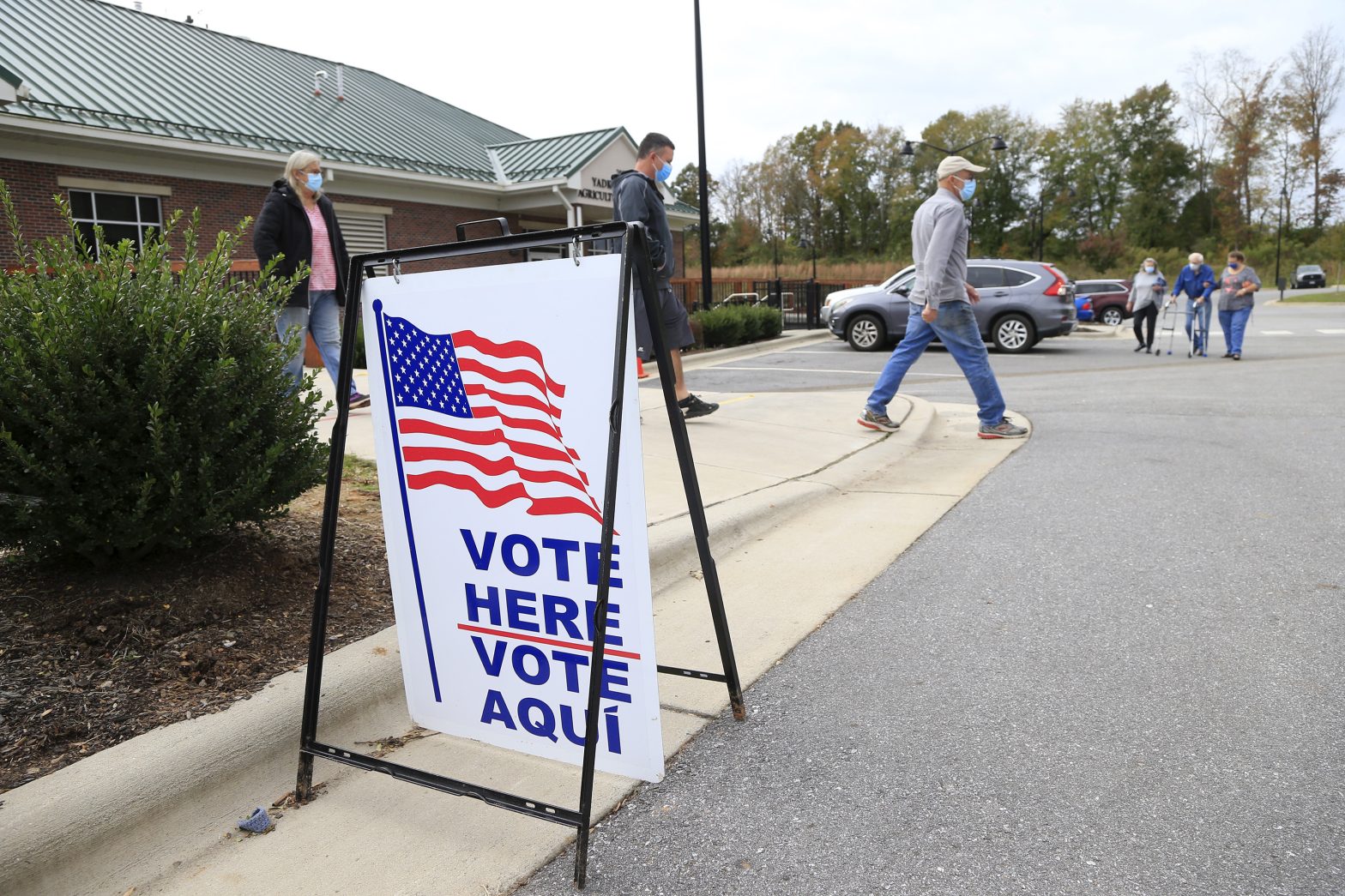Who Will Sell the Inflation Reduction Act to Voters in the Middle?
COMMENTARY

Joe Manchin framed his signature piece of legislation as a major win for America, but who will let the country know?
In the end, Joe Manchin saved the Democrats’ agenda while simultaneously extending an olive branch to the voters in the middle who are fed up with inflation and disillusioned with the party’s far-left national brand.
The perennially misunderstood West Virginia Democrat knows what it takes to sell to (and win) the middle — he won re-election in 2018 in a state that Trump won by more than 40 points just two years prior. Given Manchin’s mainstream, middle-out orientation, it’s unsurprising that his recently-passed “Inflation Reduction Act” is chock full of highly popular provisions supported by Americans across both parties.
A recent Morning Consult poll of registered voters found majority support for 10 of the bill’s 12 core components, with the most popular provision (capping price hikes on prescription drugs) reaching 77% support. It has all the hallmarks of a transformative piece of mainstream legislation — if only there were an organized faction of the Democratic Party capable of selling it to voters in the middle.
The progressive left’s frustration with Joe Manchin was a front-page news story for months, with episode after episode of conflict and criticism dominating the headlines. Alexandria Ocasio-Cortez and Bernie Sanders’ seemingly uncanny ability to suck up so much of our collective attention isn’t an accident. Entrepreneurial progressive organizations like Justice Democrats (which recruited AOC) and Our Revolution (which spun out of Bernie’s 2016 presidential campaign) have spent years and millions of dollars building the organizing infrastructure to elect and grow “The Squad” and consume the airwaves with a far-left message.
The fringe far-left faction has had such an outsized impact in defining the Democratic brand (and message) because they’ve figured out and exploited a simple fact that many aren’t aware of: there’s no such thing as “The Democrats.”
There are plenty of candidates, committees, advocacy groups, and PACs in the Democratic ecosystem, but there’s no party CEO or board of directors who sit around making decisions and allocating resources. This means that, in reality, “The Democrats” are simply whoever within the ecosystem steps up and does the hard work of organizing and investing.
According to the political scientists Steven Teles and Robert Saldin, while the far-left has spent the last decade doubling down on organizing and building a faction, moderates have largely stepped back from that nitty gritty work. As the pair wrote in a 2020 paper, moderates tend to “look for ways to redesign rules to allow the sensible but unmobilized middle to have its preferences govern without needing to do the hard work of organizing for action within the two major parties.”
While progressives have hit the ground and gotten their hands dirty, too many moderates have been content simply fiddling with the rulebook from Capitol Hill or in the halls of the bureaucracy.
This has put the middle at a disadvantage when it comes to getting the word out.
With Bernie Sanders out actively campaigning against the Inflation Reduction Act mere hours before its passage in the Senate, the organized far-left faction certainly cannot be expected to champion the Inflation Reduction Act. That means it’s time for moderates to organize, step up and speak strongly together.
As the far-left has demonstrated, an organized faction is much more adept at keeping a story afloat in today’s turbulent and fast paced news cycle than any individual elected officials or “the party” at large.
If Democrats in the middle do not organize to sell the benefits of this legislation, there’s a serious risk for Democrats that voters will enter the midterms having heard more about failed attempts to pass President Biden’s agenda than its actual passage.
Manchin has done a laudable job touting the benefits of the Inflation Reduction Act everywhere from West Virginia talk radio to Fox News, but he needs a team to back him up in that effort.
There are other moderates on Capitol Hill who have won centrist swing voters, and they have too often been lumped in with the party’s far-left fringes. For the sake of the Democratic Party and the future of our democracy, moderate democrats must strategically bang the drum on this landmark legislation — demonstrating to a skeptical mainstream that the party’s center of gravity is in the middle, not the fringes.
So far, the prevailing narrative in the media has been about the far-left vs. Manchin. It’s time to make it about the far-left vs. the mainstream center-left instead.
The Inflation Reduction Act has all the makings of a major, moderate-led victory for the Democrats. Not only is the new legislation the product of strategic moderation, but it does a lot that voters in the middle (and even some of Joe Manchin’s right-of-center constituents) can and should celebrate — if only they can be reached.
If moderates like Manchin want to maximize their impact and reach ahead of and beyond the midterms — and give the Democratic Party the credibility it desperately needs with voters in the middle — they’ll need to take a page out of the far-left’s playbook and show they have real ground game.
Lauren Harper is co-founder of WelcomePAC and The Welcome Party, which work to grow and sustain a mainstream, big-tent Democratic Party. She previously served as South Carolina state director for former Texas Rep. Beto O’Rourke’s presidential campaign and as policy and communications advisor for Columbia, South Carolina, Mayor Steve Benjamin. You can reach her organization on Twitter @theWelcomePAC.























